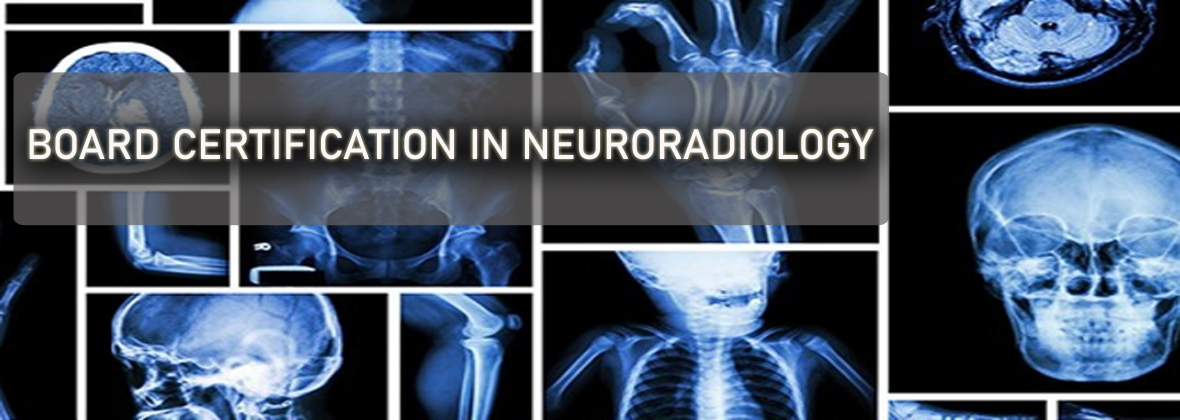
![]()
The Board of Study in Radiology (BOSR), from its inception in 1980, has endeavored meticulously to train and provide our country with well trained and Board Certified Specialists in General Radiology.
Although General Radiologists are able to provide optimal radiological services for the majority of diseases that come up in practice, ultra-specialist services are required in certain identified focused areas. To cater to this need, the BOSR has decided to start a training programme for Neuroradiology, a subspecialty in Radiology recognized and approved by the Ministry of Health and PGIM.
The mission of this endeavour is to produce appropriately selected, properly trained, exquisitely competent and holistically caring Neuroradiologists who can provide state-of-the-art Neuroradiology services. The Neuroradiologist is expected to provide specialty services to patients who need advanced imaging in managing neurological diseases.
The goal is coverage of all areas of the country with the provision of Specialized Units managed by Neuroradiologists in all Teaching Hospitals and Provincial General Hospitals in the initial stage. It is necessary to make sure that the Ministry of Health is kept informed from the outset that separate specialized Neuroradiology Units should be established along with Neurosurgery and Neurology units and to which Neuroradiologists would be appointed.
![]()
The programme is designed to provide comprehensive training that would equip the final trained specialist to deal with all types of Neuroradiology imaging services that are required in the management of patients with neurological disorders. It is expected that the fully trained specialist would be up-to-date with all recent developments and would be in a position to provide expert services of a Specialist Neuroradiologist.
At the end of the training programme the trainee should have developed the following capabilities.
- Patient care
- The ultimate aim is to provide comprehensive and specialized diagnostic Neuroradiology services to patients.
- The trainees should be able to determine the infrastructure facilities required for optimal services to patients with neurological disorders and make fervent efforts to acquire such facilities.
- Medical knowledge
- It is expected that the trainees should acquire extensive and up-to-date knowledge on neurological disorders during the course of the training programme. Wide reading and critical thinking together with reflective documentation are essential attributes that should be developed during the training programme.
- Interpersonal and communication skills
- It is essential that the trainees develop the indispensable skills in communication and liaison with other colleagues and the staff of different units of a medical facility with whom they have to have a constant dialogue. A Neuroradiologist involves a multi-disciplinary approach in many instances and proper communication with all those involved in the management of patients is crucial to the provision of optimal care.
- The trainees should also acquire the necessary skills and attitudes in maintaining a dialogue with the affected patients and their family members. Development of empathy and understanding of the problems faced by them would be an essential prerequisite to being a competent and successful Neuroradiologist.
- Professionalism
- It is envisaged that the trainees in Neuroradiology would act and behave in a most professional manner in all dealings with senior and junior colleagues and others involved in the management of patients. This is particularly relevant in neurological disorders to secure the services of several other para-medical categories of staff in the provision of comprehensive services to patients.
- These attitudes and skills need to be carefully nurtured during the training programme.
- Management Skills
- In practice, the Neuroradiologist will be the team leader in the Neuroradiology Unit. In addition to the clinical radiology work, he/she is expected to carry out certain administrative duties of the unit to organize smooth functioning of the Unit.
![]()
- Successful completion of MD Radiology examination held immediately before the allocation meeting.
- Trainee should not be previously Board Certified by the PGIM in any Specialty or Subspecialty.
Please refer to the relevant prospectus for the most up to date information. The prospectus of a particular programme contains official information pertaining to a programme approved by the Board of Management, University Senate and the University Grants Commission